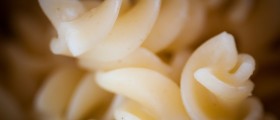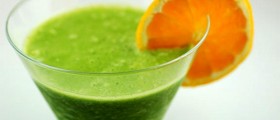
Energy Makers
When it comes to exercising and doing various physical activities, the most vital energy sources are carbohydrates. When it comes to our body, it is capable of making its own storage of carbohydrate called glycogen. This substance can be further broken down, and thus become a richer energy source than fats even, which is considered to be the ultimate energy source in the body. Unfortunately, our body is capable of storing only small quantities of glycogen, which means that this glycogen storage gets emptied pretty fast during physical activities and training. As a consequence of this, the overall performance during physical activities loses on its effectiveness, and enhances the risk of a person getting injured more easily.
Rowers and Energy Boosters
Despite the fact that all that a rower consumes on the racing day is essential, what is even more vital for them is to keep as much glycogen in their muscles as possible, and do so on an extremely high note, in order to keep the satisfying high level of training efficiency. To be able to accomplish this, what they need is to embrace a diet that is extremely rich in carbohydrates and moderate in vitamins, proteins, fluids and minerals, and as low in fat as possible.
Levels Requirements
According to the numerous researches on rower’s stamina and loss of energy, which result in their inability to reach the high levels they are accustomed to, it has been discovered that just 36% of the entire sum of calories (daily basis intake) directly resulted from carbohydrates. This is incredibly below the proper level, which is set at 60%. What this boils down to in reality is that they did not take in enough quantities of food that abounds in carbohydrates, which is of utmost importance for the creation and maintenance of proper glycogen levels crucial to effective training sessions. Therefore, while you are getting ready, consuming and taking in larger quantities of food rich in carbohydrates will enable your body to make a much larger storage of that most essential substance known as glycogen. A good starting point is to aim for a dosage of 8-10g of carbohydrates per kg of your entire body weight, and do so regularly and on a daily basis. More applicably, for a person who weighs for example 70 kg, intake to be aimed at, on a daily basis, is round 560-700 g. One of the best ways to accomplish this is by decreasing the intake of fat and adding up on the intake of carbohydrates. This can be accomplished most easily by doing the following:
All meals should be grounded in potatoes, rice, pasta and bread predominantlyDecrease the size of fat rich portions of foodEat more porridge, since it is extremely rich in carbohydratesInclude fruit juices in your daily dietOpt for pasta sauces that are rich grounded in tomatoes and vegetables, instead in cheese or meat





_f_280x120.jpg)











Your thoughts on this
Loading...